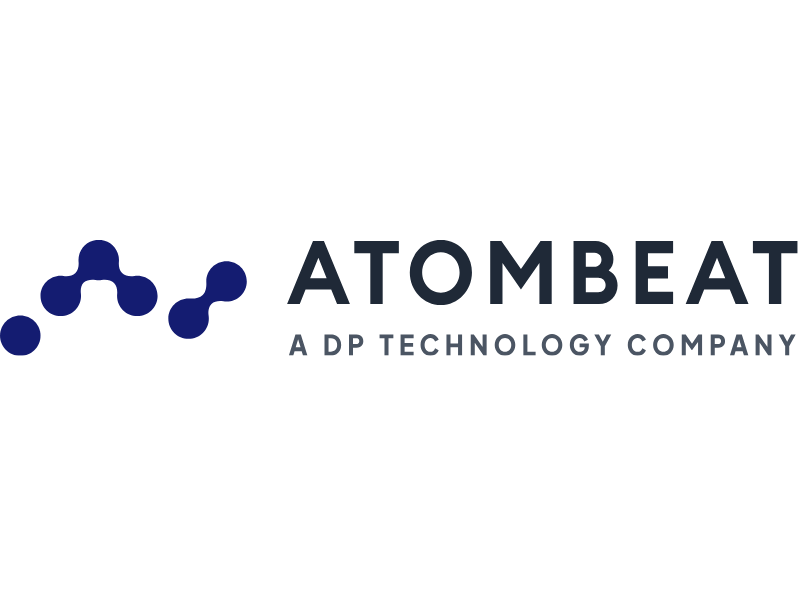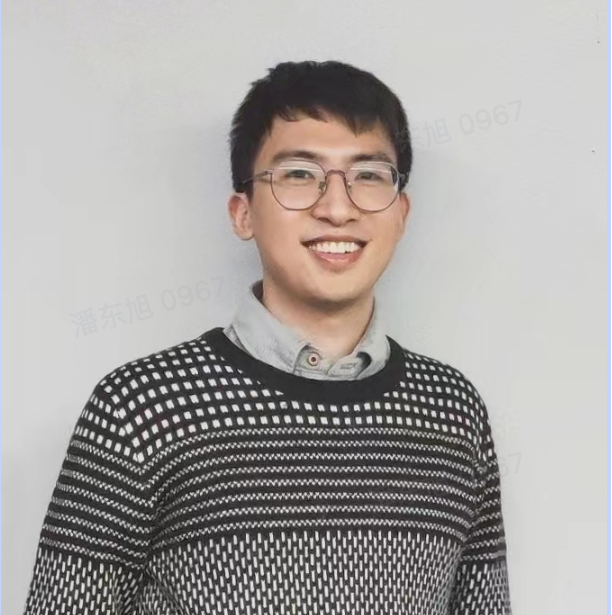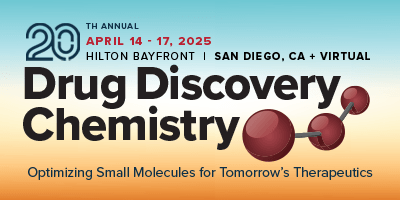Cambridge Healthtech Instituteの第7回年次
AI/Machine Learning for Early Drug Discovery - Part 1
早期創薬向けAI/ML – パート1
AI-Driven Drug Design and Lead Optimization for Small Molecule and Peptide Therapeutics
低分子・ペプチド医薬向けAIドリブンの医薬品設計とリードの最適化
2025年4月15日 - 16日PDT(米国太平洋標準時)
「早期創薬向けAI/ML」は2部構成の会議で、化学、標的発見、薬理学、バイオインフォマティクスの多様な専門家が集まり、医薬品開発における計算ツール、モデル、アルゴリズム、データアナリティクスの利用拡大について話し合います。会議では、低分子・ペプチドの医薬品開発に関連するケーススタディを用いて、AI/MLドリブンの意思決定における長所と短所に焦点を当てます。会議の第1部では、医薬品設計、ヒットの同定、PK/PD・薬物様の特性の予測、リードの最適化に、AI/MLがどのように役立つかに焦点を当てます。第2部では、ターゲットの同定、細胞経路のデコンボリューションのための新興の計算ツールやモデルに焦点を当て、様々な治療領域の化学的空間の検証によってニッチなアプリケーションを促進することができます。
*Premium Pricing or separate registration required. See Short Courses page for details.
4月15日(火)
7:00 amRegistration Open and Morning Coffee
ACCELERATING DRUG DISCOVERY USING AI/ML
AI/MLによる創薬の加速
FEATURED PRESENTATION: A Quantum Leap from Physics to AI- 15 years of Transforming Drug Discovery
 Jose Duca, PhD, Global Head Computer Aided Drug Discovery, Global Discovery Chemistry, Novartis Institutes for Biomedical Research Inc.
Jose Duca, PhD, Global Head Computer Aided Drug Discovery, Global Discovery Chemistry, Novartis Institutes for Biomedical Research Inc.
We will explore the transformative journey of drug discovery over the past 15 years, driven by advancements in AI, quantum mechanics, and physics-based methods. We will highlight the importance of creating a dry lab (Computer-Aided Drug Discovery, CADD group) grounded in physics and first principles, showcasing innovative techniques that have revolutionized drug design. Additionally, we will demonstrate how a relentless focus on delivering the portfolio has led to groundbreaking discoveries.
 AI-Driven Drug Design and Lead Optimization for Small Molecule and Peptide Therapeutics
AI-Driven Drug Design and Lead Optimization for Small Molecule and Peptide Therapeutics
 Douglas Kitchen, Head, Computational Chemistry, Curia
Douglas Kitchen, Head, Computational Chemistry, Curia
Curia was founded in 1992 and the Computer-assisted drug discovery group began in 1997. The CADD group has applied computational and cheminformatics calculations to dozens of projects as part of project teams from Curia and multiple drug discovery entities. We have found that the expert use of computational chemistry in collaboration with experimentalists leads to successful projects with the generation of novel chemical matter and preclinical leads. Several example projects will illustrate the use of virtual screening, traditional physics-based modeling, reaction modeling and library design in early drug discovery.
9:40 amBreakout Discussions (In-Person Only)
Breakout Discussions are informal, moderated discussions, allowing participants to exchange ideas and experiences and develop future collaborations around a focused topic. Each breakout will be led by a facilitator/s who keeps the discussion on track and the group engaged. Please visit the Breakout Discussions page on the conference website for a complete listing of topics and descriptions. Breakout Discussions are offered in-person only.
10:25 amNetworking Coffee Break
Leveraging Organoid Models and AI for Drug Discovery in Women’s Reproductive Health
 Morgan Stanton, PhD, CEO, Opal Therapeutics
Morgan Stanton, PhD, CEO, Opal Therapeutics
Opal Therapeutics is building a biotechnology platform dedicated to drug discovery in women’s reproductive health. By integrating patient-derived uterine organoids for chemical screening and advanced AI image analysis, we are pioneering innovative therapeutic approaches for chronic gynecological conditions, including fibroids and endometriosis. Our platform aims to uncover novel pharmaceutical solutions, addressing the urgent need for targeted interventions in women’s healthcare.
Leveraging Multiomics Data to Identify and Prosecute Targets Implicated in Women's Health
 Petrina Kamya, PhD, Global Head of AI Platforms & Vice President, Insilico Medicine; President, Insilico Medicine Canada
Petrina Kamya, PhD, Global Head of AI Platforms & Vice President, Insilico Medicine; President, Insilico Medicine Canada
Endometriosis and alternative sources of non-hormonal contraception are neglected and challenging issues associated with women's health. Today, I will discuss how we leverage multiomics data and AI to identify novel targets implicated in Endometriosis and how we contribute to the challenge of designing novel non-hormonal contraceptives using AI.
Tackling New Therapies for PCOS with Machine Learning-Accelerated Medicinal Chemistry
 Emily Hanan, Head, Medicinal Chemistry, PostEra
Emily Hanan, Head, Medicinal Chemistry, PostEra
PCOS impacts 1 in 10 women of reproductive age, yet has no specifically-approved therapeutics. In this heterogeneous endocrine disorder, androgen excess is linked to reproductive dysfunction and hirsutism. In our pursuit of novel therapies for PCOS, we have successfully applied our machine learning-driven medicinal chemistry platform to rapidly optimize a series of small molecules which affect the testosterone biosynthesis pathway, demonstrating in vivo reduction of testosterone with advanced leads.
12:20 pmTransition to Lunch
 LUNCHEON PRESENTATION: Accelerating Drug Discovery with AI and Next-Generation Automation
LUNCHEON PRESENTATION: Accelerating Drug Discovery with AI and Next-Generation Automation
 Michael Bellucci, Sr Dir R&D, R&D, XtalPi Inc
Michael Bellucci, Sr Dir R&D, R&D, XtalPi Inc
In this presentation we will examine XtalPi's philosophy, which integrates AI with physics-based methods to achieve the goal of accurate and efficient exploration of chemical space. Our discussion will highlight the synergy between these computational strategies and how they contribute to more accurate predictions and streamlined drug development processes. Furthermore, we will introduce our cutting-edge automation platform, a beacon of innovation in automated chemical synthesis. Automated chemical synthesis is not only reshaping the landscape of drug discovery but also setting new standards for efficiency and innovation. Through multiple case studies, we will showcase our tailored approach to harnessing AI & Automation capabilities, illustrating how XtalPi's platform drives innovation and efficiency across specific drug discovery projects for our clients.
12:55 pmSession Break
SMALL MOLECULE DRUG DESIGN USING AI/ML
AI/MLによる低分子の医薬品設計
AI/ML-Based Discovery of Novel 5-HT2A Receptor Agonists with Non-Hallucinogenic Potential
 Tanweer A. Khan, PhD, Senior Director & Head, Discovery Chemistry, ATAI Life Sciences
Tanweer A. Khan, PhD, Senior Director & Head, Discovery Chemistry, ATAI Life Sciences
We identified non-hallucinogenic 5-HT2AR agonists with antidepressant-like activity through AI-driven drug design. These molecules showed strong in vitro 5-HT2AR activation, high brain penetration in rodents, and antidepressant-like effects in behavioral and EEG tests without hallucinogenic responses.
Using AI for mRNA-Targeted Small Molecule Drug Discovery: Tips, Tricks, and Pitfalls
 Ella Morishita, PhD, Senior Investigator, Basic Research, Veritas In Silico Inc.
Ella Morishita, PhD, Senior Investigator, Basic Research, Veritas In Silico Inc.
Discovering mRNA-targeted small molecule drugs presents challenges in identifying optimal targets and developing potent, specific modulators. This presentation will explore how advanced experimental tools and computational techniques, including AI, integrated within our ibVIS platform can enhance target identification, screening, hit-to-lead, and lead optimization. New data and effective strategies will be shared to advance drug discovery programs while avoiding potential pitfalls.
AI-Powered Hit Finding and Beyond
 Dmitri Kireev, PhD, Professor, Department of Chemistry, University of Missouri
Dmitri Kireev, PhD, Professor, Department of Chemistry, University of Missouri
Lead discovery is shifting toward hard-to-drug targets, while fast-growing chemical spaces offer new hit-finding opportunities. Yet, technologies for exploiting vast spaces to identify leads against challenging targets are yet to emerge. We present our effort on addressing these challenges by enhancing our FRASE-bot platform to include 3D pharmacophore searches on multi-billion datasets, ABFE simulations, and new strategies for extracting from phenotypic data, with a focus on lead identification and optimization.
 Drug Activity Evaluation: Data, Physical Methods and Pre-trained Models
Drug Activity Evaluation: Data, Physical Methods and Pre-trained Models
 Hang Zheng, Senior Researcher, Atombeat
Hang Zheng, Senior Researcher, Atombeat
Efficient lead optimization combines physics-based precision with AI-driven scalability. Our system integrates FEP with on-the-fly DPA-2 force field refinement for accurate affinity predictions and uses an AI Agent to extract compound-activity data from patents, expanding datasets. Leveraging the Uni-Mol pre-trained model, AutoML, and contrastive learning, we enhance QSAR modeling. These advances form a robust drug activity evaluation system, accelerating lead optimization.
3:35 pmGrand Opening Refreshment Break in the Exhibit Hall with Poster Viewing and Best of Show Voting Begins
PLENARY KEYNOTE SESSION
プレナリーセッション(基調講演)
Applying Diverse Small Molecule Strategies to Difficult Targets: Drugging BTK for (Neuro)Immunology
 Christopher J. Helal, PhD, Vice President & Head, Medicinal Chemistry, Biogen
Christopher J. Helal, PhD, Vice President & Head, Medicinal Chemistry, Biogen
Bruton's Tyrosine Kinase (BTK) plays a central role in certain cancers which has led to the identification and approval of several covalent inhibitors. Despite this progress, challenges exist in identifying BTK inhibitors with improved safety profiles and brain penetration to address both peripheral and central immunological diseases. In this talk we will share application of diverse strategies to inhibit or degrade BTK for optimal efficacy and safety.
5:35 pmWelcome Reception in the Exhibit Hall with Poster Viewing
6:35 pmClose of Day
4月16日(水)
7:15 amRegistration Open and Morning Coffee
DIVERSIFYING AI/ML APPLICATIONS
AI/MLアプリケーションの多様化
Creating and Using Enchant, the Multi-Modal Transformer for Drug Discovery
 Fred Manby, DPhil, Co-Founder & CTO, Iambic Therapeutics
Fred Manby, DPhil, Co-Founder & CTO, Iambic Therapeutics
Many companies-including Iambic-have worked on laboratory automation to generate large volumes of high-quality laboratory data. But in drug discovery it’s more important to have good solutions for many challenges than perfection for one. At Iambic we have built Enchant to address this issue head-on: Enchant is a multimodal transformer trained on dozens of modalities and drug-discovery data sources. As such it can be deployed on a huge range of highly relevant issues in drug discovery. Here we’ll discuss what it took to create Enchant, and how we leverage this and other AI technologies in our drug discovery pipeline.
How Drug Discovery Applications Drive AI Innovations and Vice Versa
Jose Duca, PhD, Global Head Computer Aided Drug Discovery, Global Discovery Chemistry, Novartis Institutes for Biomedical Research Inc.
Brian Loyal, Principal Solutions Architect, Artificial Intelligence & Machine Learning, Amazon Web Services
9:35 amCoffee Break in the Exhibit Hall with Poster Awards Announced (Sponsorship Opportunity Available)
10:30 amSponsored Presentation (Opportunity Available)
Applications of Machine Learning in Target-Based Drug Discovery
 Sean Ekins, PhD, Founder & CEO, Collaborations Pharmaceuticals, Inc.
Sean Ekins, PhD, Founder & CEO, Collaborations Pharmaceuticals, Inc.
Collaborations Pharmaceuticals, Inc. is a small drug discovery company that has developed its own suite of machine learning tools. These technologies have been applied to various drug discovery and toxicology targets to build and validate models prior to screening drug or compound libraries and eventual in vitro testing. Recent applications include Glycogen Synthase Kinase 3 beta (GSK-3ß or GSK-3B) as well as Chemokine receptors CCR3, CCR4, and CCR5. We will describe how these and other examples can be used to illustrate how we use in vitro and machine learning to identify new molecules for multiple diseases impacting human health.
AI/ML-Based Discovery of Novel Allosteric MALT1 inhibitors for the Treatment of Hematology Indications
 Peter C Ray, PhD, Executive Director, Drug Design, Exscientia Ltd.
Peter C Ray, PhD, Executive Director, Drug Design, Exscientia Ltd.
Inhibition of MALT1 may have benefit for hematological malignancies where MALT1 is constitutively activated, such as activated B-cell (ABC)-DLBCL, as a single agent or in combination with BCR signaling pathway modulators such as BTK inhibitors. Design of novel allosteric MALT1 inhibitors using MD, ML and AI generative design approaches will be described, leading to REC-3565 development candidate, with selectivity over UGT1A1, which distinguishes it from other MALT1 inhibitors in clinical development.
12:00 pmClose of AI/Machine Learning - Part 1 Conference
*不測の事態により、事前の予告なしにプログラムが変更される場合があります。
アジェンダ・講演者・スポンサー更新
2025年 4月 14日
2025年 4月 15 - 16日
2025年 4月 16 - 17日























